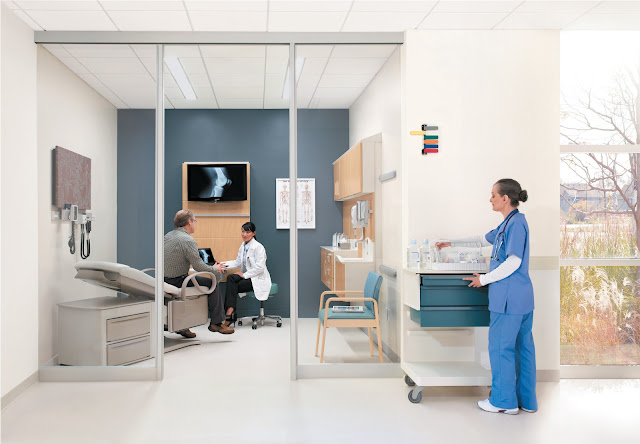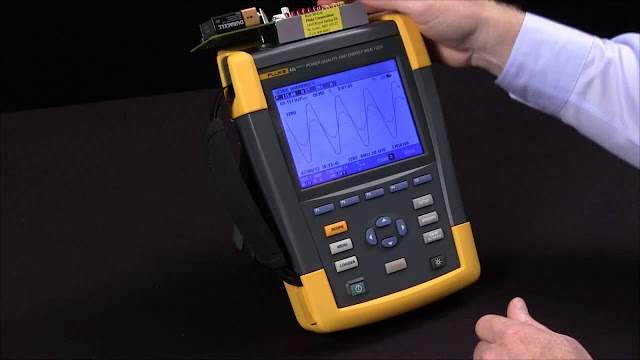Electronic Nose Market Is Estimated To Witness High Growth Owing To Opportunity Of Increasing Implementation In Healthcare Industry
Electronic Nose Market
An electronic nose, also known as e-nose, is a device
that identifies and detects aromas and volatile organic compounds by mimicking
olfactory perception using chemical sensors and pattern recognition systems. It
consists of an array of broadly tuned gas sensors and a neural network style
pattern recognition system for data analysis. E-noses have numerous
applications including in the fields of healthcare, food & beverage,
environmental monitoring, security and others. The growing demand for e-nose
devices in healthcare applications such as disease detection and analysis is
expected to drive the overall market growth.
The global Electronic Nose Market is
estimated to be valued at Us$ 34.71 Bn in
2024 and is expected to exhibit a CAGR Of
8.6% over the forecast period 2024
To 2031, as highlighted in a new report published by Coherent Market
Insights.
Market Opportunity:
The increasing utilization of electronic nose devices in the healthcare
industry for early detection of various diseases and diagnosis would create
lucrative opportunities for market players. E-nose devices are rapidly gaining
acceptance in the healthcare sector for the analysis of volatile organic
compounds in exhaled breath samples which are indicative of certain diseases.
For instance, they are able to detect lung cancer, tuberculosis, asthma,
urinary tract infections and others at an early stage by analyzing a patient's
breath. The non-invasive nature and ability to provide quick results makes
these devices an attractive alternative to conventional diagnostic methods. The
growing focus on remote patient monitoring during the ongoing pandemic is
further expected to boost the adoption of electronic nose devices in healthcare
in the coming years.
Porter’s Analysis
Threat of new entrants: The market requires large capital investments, advanced
technological expertise, and established brand reputation. These barriers make
it difficult for new companies to enter the market.
Bargaining power of buyers: Large buyers like end-user industries can negotiate
lower prices due to their higher purchase volumes. However, the specialized
nature of electronic nose products limits buyers' alternatives and improves
producers’ bargaining power.
Bargaining power of suppliers: A few electronic component suppliers dominate
the global supply chain. This enables them to influence prices, though quality
standards force brand loyalty.
Threat of new substitutes: No close substitutes exist for electronic noses.
However, traditional analytical techniques still serve niche applications,
posing a minor threat.
Competitive rivalry: Established brands compete on performance, features, and
pricing. Technology upgrades and product innovations help companies increase
market share.
SWOT Analysis
Strengths: Non-invasive detection methods. Portable design for on-site usage.
Ability to differentiate odors for various applications boost demand.
Weaknesses: High costs of developing and manufacturing e-nose systems. Require
extensive R&D and calibration for new odor profiles.
Opportunities: Growing food safety concerns expand usage in quality testing.
Rising environmental monitoring needs open new avenues. Adoption in various
healthcare sectors presents scope.
Threats: Limitations in distinguishing complex odor mixtures correctly. Slow
market acceptance of new technologies impacts revenues initially.
Key Takeaways
The Global Electronic Nose Market Demand is
expected to witness high growth owing to increasing demand across various
end-use industries like healthcare, food & beverage, and environmental
monitoring.
The
North America region currently dominates the market due to growing concerns
about food safety, presence of leading players, and huge R&D investments.
Europe is another major market for electronic noses driven by rising
environmental regulations.
Key players operating in the Electronic Nose Market are ABB, Schneider
Electric, Eaton, Siemens, Emerson, Vertiv, Raycap, Hager, Legrand, Tripp Lite,
Leviton, Phoenix Contact, Citel, General Electric, Rockwell Automation, nVent,
Belkin, REV Ritter, Littelfuse, and MARS Sicherheit. The market is moving
towards consolidation as companies focus on advancing product technology
through acquisitions and partnerships.
Get more insights on this topic :




Comments
Post a Comment